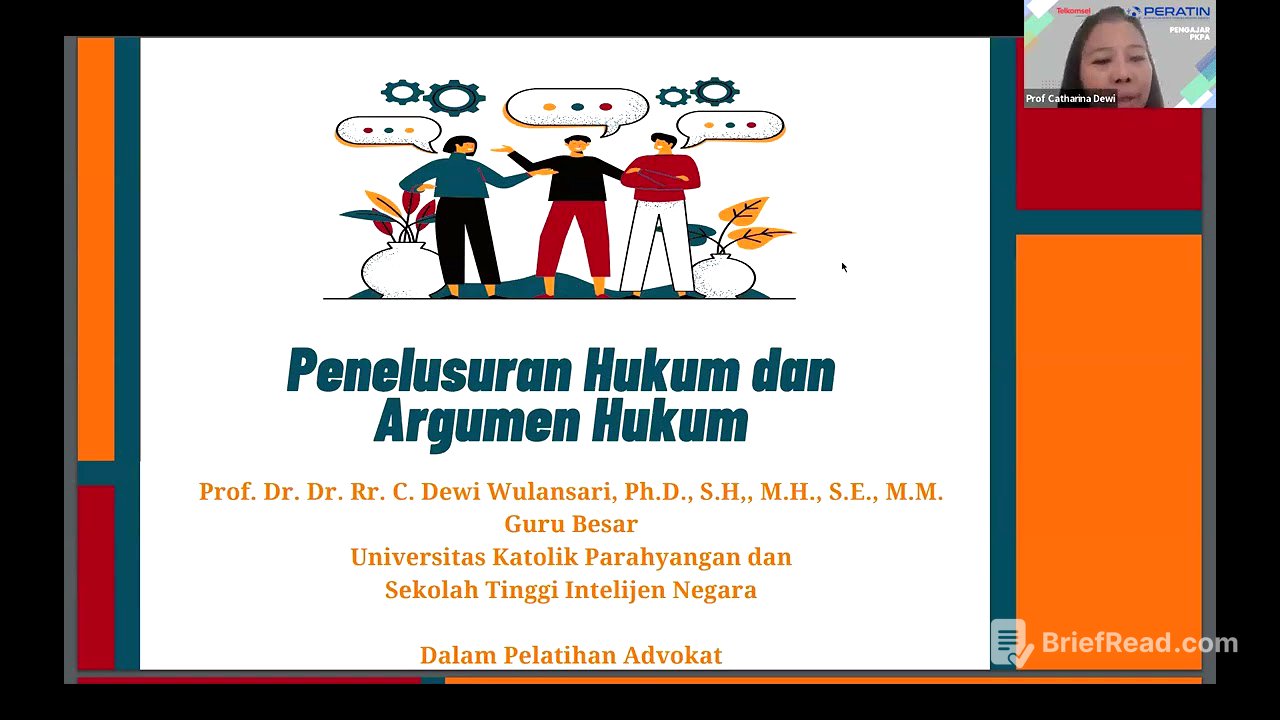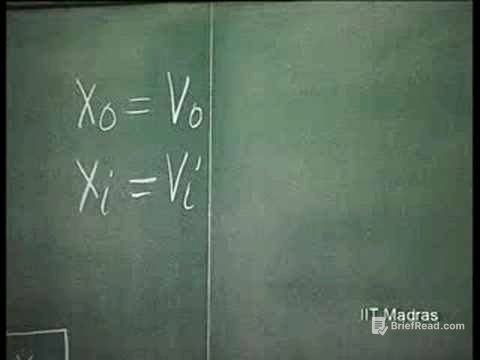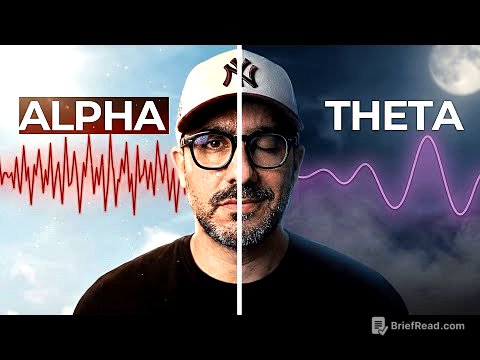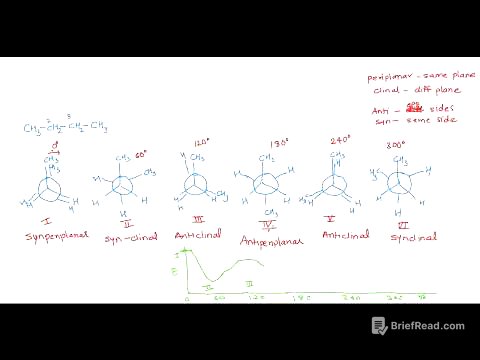TLDR;
This YouTube video features a presentation by Prof. Dr. RR Kina Dewi Wulansari on legal research and legal arguments, essential tools for lawyers. She emphasizes the importance of mastering these skills to effectively represent clients and navigate the complexities of the legal field. The presentation covers key aspects such as legal auditing, fact collection, regulatory analysis, and the application of logic and reasoning in legal problem-solving. Prof. Dewi also discusses the significance of moral intelligence and continuous learning in becoming a successful and smart lawyer.
- Legal research and argumentation are crucial for lawyers.
- Legal auditing involves collecting and analyzing relevant regulations.
- Logic, reasoning, and moral intelligence are essential for effective legal problem-solving.
- Continuous learning and adaptation are necessary to stay ahead in the evolving legal landscape.
Introduction [0:00]
The session will cover legal research and legal arguments, skills often neglected by law students but crucial for lawyers. Prof. Dewi emphasizes that these skills are the "weapons" lawyers use to represent their clients effectively. She shares her personal experience of prioritizing legal arguments and reasoning, which she believes has contributed to her success in court.
Legal Auditing and Its Importance [5:36]
Prof. Dewi introduces the concept of legal auditing, which involves collecting legal regulations relevant to a case. This process, borrowed from fields like finance and economics, is essential for preparing a strong defense or argument. She stresses that legal auditing requires skill and training to be effective.
Legal Cases and Their Resolution [8:10]
The discussion shifts to legal cases and their resolution, highlighting that cases must have legal consequences to be considered legal cases. The resolution process involves linking the case to relevant regulations, conducting legal audits, and using logic to analyze the situation. Prof. Dewi emphasizes the importance of considering one's feelings and morality in legal analysis, as these contribute to being a smart lawyer.
The Importance of Being a Smart Lawyer [13:43]
Prof. Dewi stresses that mastering legal research and argumentation is akin to training to be a smart person. She warns that lacking these skills can lead to negative impacts, including a lack of prosperity. She reinforces that being smart is a skill that can be trained and developed.
Seven Steps of Legal Problem Solving [15:26]
Prof. Dewi outlines the seven steps of legal problem-solving, emphasizing the importance of collecting legal facts and organizing them chronologically. She also discusses the need for holistic regulatory audits, avoiding a narrow focus and considering related legal problems.
Hierarchical Arrangement of Regulations [20:08]
The presentation emphasizes the importance of arranging regulations hierarchically, starting from the highest to the lowest. After conducting an audit, legal analysis and arguments should be made, ensuring that previous steps have been fulfilled.
Consequences of Wrong Reasoning [23:00]
Prof. Dewi warns about the dangers of wrong reasoning and argumentation, which can endanger one's position. She stresses the need for questioning one's reasoning to ensure safety and accuracy.
Moral Intelligence and the Fuka Era [24:28]
The discussion shifts to the importance of moral intelligence in becoming a smart lawyer. Prof. Dewi explains that in the "fuka era," characterized by volatility, uncertainty, complexity, and ambiguity, legal experts must provide clarity. She suggests that moral intelligence is key to high IQ and effective legal practice.
Q&A: Morality Intelligence and Communication [28:35]
Prof. Dewi addresses a question about the role of morality intelligence in communication and adaptation. She explains that lacking morality intelligence can hinder one's ability to read problems and forecast outcomes. She emphasizes that continuous learning and humility are essential for staying ahead in a complex world.
Logic and Feeling in Legal Practice [35:07]
Prof. Dewi clarifies that logic and feeling are essential in all aspects of life, not just law. She acknowledges that mistakes in reasoning can occur due to various factors, such as personal background. She highlights the importance of training to avoid errors in legal arguments and decision-making.
Legal Reasoning and Argumentation [43:09]
Prof. Dewi defines legal reasoning as an intellectual activity that enables logical thinking related to the law. It involves identifying legal rights and obligations and supporting them with reasoning. She outlines five steps in legal reasoning: identifying facts, qualifying the example, legal search, and applying the rule structure.
Identifying Facts and Legal Qualifications [48:51]
The presentation emphasizes the importance of organizing facts systematically and having a strong understanding of legal qualifications. Prof. Dewi provides examples of legal qualifications, such as unlawful acts (PMH), and stresses the need to continuously expand one's knowledge of legal concepts.
Legal Sources and the New Criminal Code [51:26]
Prof. Dewi discusses the importance of looking for legal sources and the structure of rules. She uses the example of the new Criminal Code to illustrate errors in qualifying customary offenses as only criminal, highlighting the need for logical analysis and moral conscience.
Testing Legal Qualifications and the Role of Conscience [57:08]
Prof. Dewi emphasizes the importance of testing legal qualifications and listening to one's conscience. She advises against using "Buddhist glasses" and encourages continuous learning and self-reflection.
Legal Argumentation and Systematic Interpretation [59:10]
The presentation discusses legal argumentation and systematic interpretation, using the example of the Bandung Laut Asmara case. Prof. Dewi highlights the importance of systematic interpretation and the use of primary and secondary legal sources.
Principles of Legal Research [1:06:01]
Prof. Dewi outlines the principles of legal research, including the need for up-to-date regulations and hierarchical auditing. She stresses the importance of considering space and time dimensions, especially in customary law.
Application of Rule Structure and Legal Discovery [1:07:07]
The discussion shifts to the application of rule structure and legal discovery, emphasizing the need for legal reasoning and logic. Prof. Dewi explains that legal discovery involves applying general law to specific events and treating regulations according to the facts.
Legal Interpretation and Construction [1:10:17]
Prof. Dewi introduces legal interpretation and construction, starting with legal interpretation. She recommends using authentic interpretation first, followed by grammatical interpretation. She emphasizes the importance of understanding the intention of the lawmakers.
Types of Legal Interpretation [1:12:36]
The presentation covers various types of legal interpretation, including grammatical, historical, systematic, sociological, and authentic. Prof. Dewi provides examples of each type and stresses the need to avoid "horse blinders" and continuously learn.
Grammatical Interpretation and Its Pitfalls [1:13:43]
Prof. Dewi explains grammatical interpretation, emphasizing the need to capture the meaning of a text according to the sound of the words. She warns against focusing too much on words and neglecting the overall context.
Historical Interpretation and Legislative Intent [1:17:35]
The discussion shifts to historical interpretation, where experts trace the intentions of the legislators. Prof. Dewi shares her experience as an expert staff member of the DPR for the drafting of the State Intelligence Law.
Systematic Interpretation and Diligence in Reading [1:20:17]
Prof. Dewi emphasizes systematic interpretation, where one cannot just use one article but must connect it with other provisions. She stresses the need to be diligent in reading and learning various regulations.
Teleological and Sociological Interpretation [1:27:15]
The presentation covers teleological and sociological interpretation, highlighting the need to detect the purpose of regulations and consider the social condition of society. Prof. Dewi provides examples of how these interpretations are used in practice.
Authentic Interpretation and a Humorous Example [1:32:54]
Prof. Dewi explains authentic interpretation, where the lawmakers officially make the interpretation. She provides a humorous example of misinterpreting a laundry sign.
Legal Construction: Analogy, Refinement, and Argumentum a Contrario [1:35:08]
The discussion shifts to legal construction, covering analogy, refinement of law, and argumentum a contrario. Prof. Dewi provides easy-to-understand explanations of each concept.
Importance of Continuous Training and Morality Intelligence [1:39:29]
Prof. Dewi emphasizes the importance of continuous training and morality intelligence in becoming a logical and effective lawyer. She reiterates that morality intelligence and spiritual intelligence are essential for logical reasoning.
Q&A: Updating Legal Interpretation and the Omnibus Law [1:41:23]
Prof. Dewi addresses a question about updating legal interpretation in light of the Omnibus Law. She stresses the need to forecast possibilities and provide clients with a clear overview of risks and choices.
Q&A: Multiple Interpretations and Artificial Intelligence [1:47:56]
Prof. Dewi answers a question about multiple interpretations and the role of artificial intelligence in legal practice. She explains that artificial intelligence is helpful for programmed cases but cannot replace human interpretation and construction in new and complex situations. She emphasizes that logic, reasoning, and philosophical skills are essential for smart lawyers.









